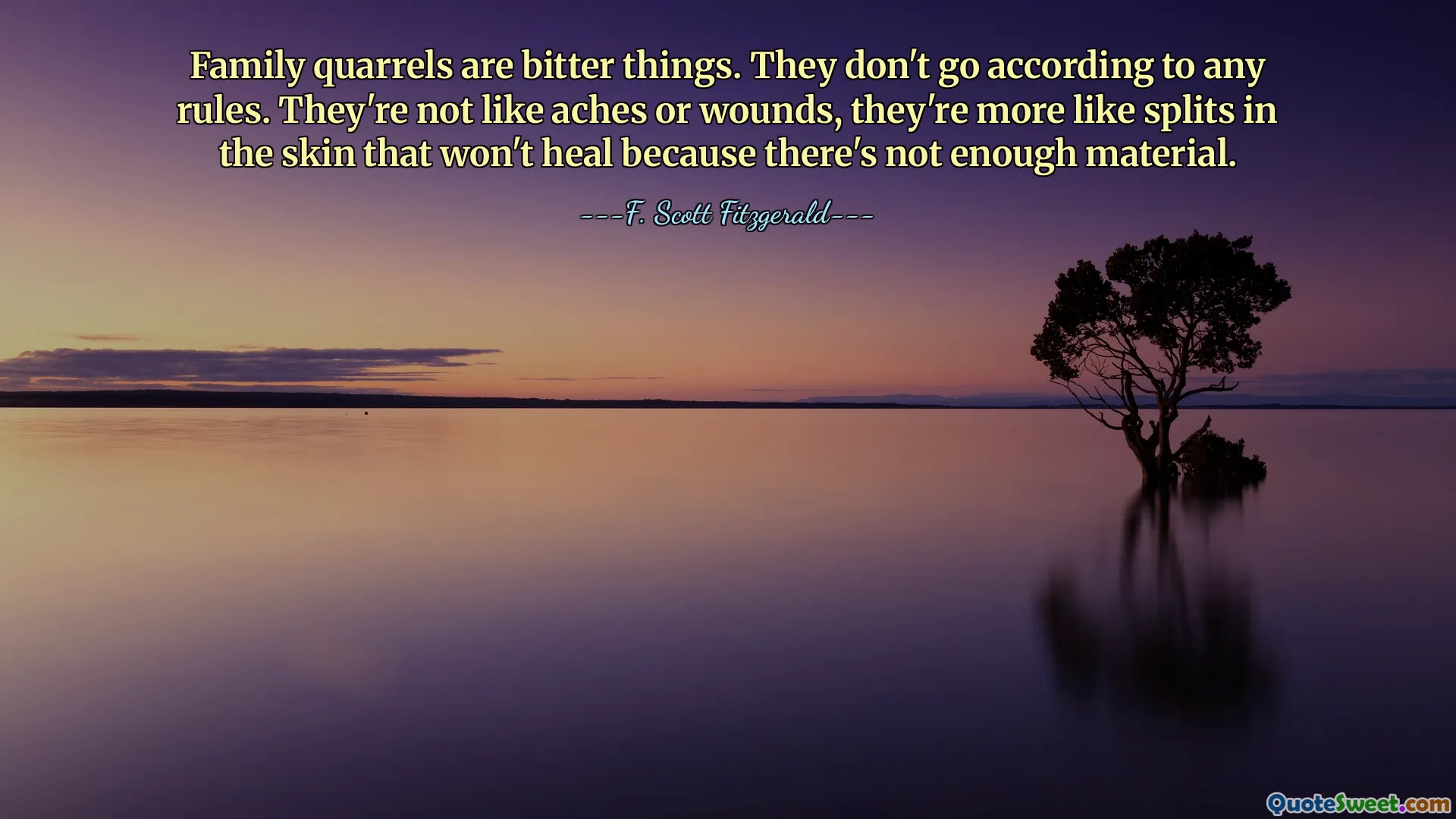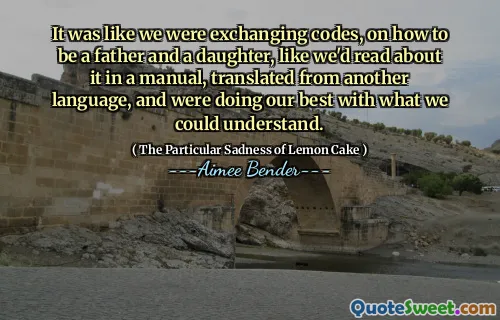
Family quarrels are bitter things. They don't go according to any rules. They're not like aches or wounds, they're more like splits in the skin that won't heal because there's not enough material.
Family conflicts are often depicted as deeply painful experiences that resist straightforward healing, and this quote captures that reality with poignant clarity. Unlike physical injuries, which generally follow predictable healing processes, emotional wounds from family disputes tend to be complex and persistent due to their intricate emotional ties and shared history. When disagreements occur within a family, they are usually intertwined with personal identities, long-standing traditions, and unspoken expectations, making resolution more complicated than addressing a simple physical injury.
The analogy of splits in the skin that refuse to heal because there's not enough material underscores the ongoing nature of unresolved familial conflicts. It suggests that sometimes, despite efforts to mend, certain divisions remain, perhaps because the fundamental issues are not entirely acknowledged or because the emotional 'material' needed to repair these rifts is insufficient. Such disputes can fester, influencing relationships, trust, and individual well-being over time.
Dealing with family quarrels requires patience, understanding, and often a willingness to confront uncomfortable truths. It also involves recognizing that not all conflicts will have straightforward resolutions, and some emotional scars may persist. This understanding fosters compassion and a realistic approach to reconciliation—accepting that some divides may remain, but they can be managed with ongoing effort and empathy.
Ultimately, the quote serves as a reminder of the unique complexity of familial relationships—they are deeply rooted, emotionally charged, and sometimes resistant to simple fixes. Appreciating this can encourage a more nuanced approach to family conflicts and promote a sense of acceptance and resilience.











